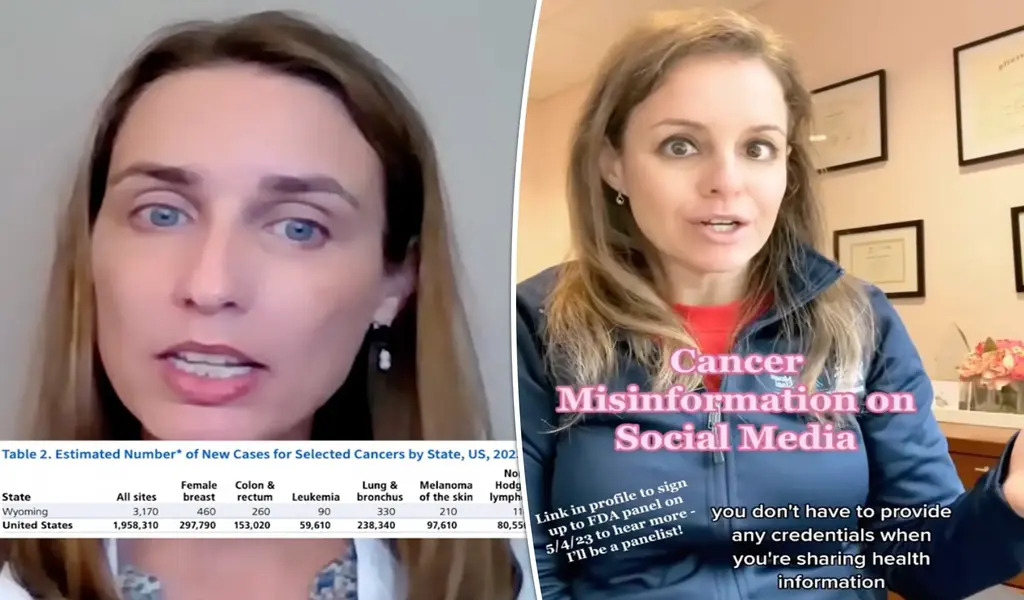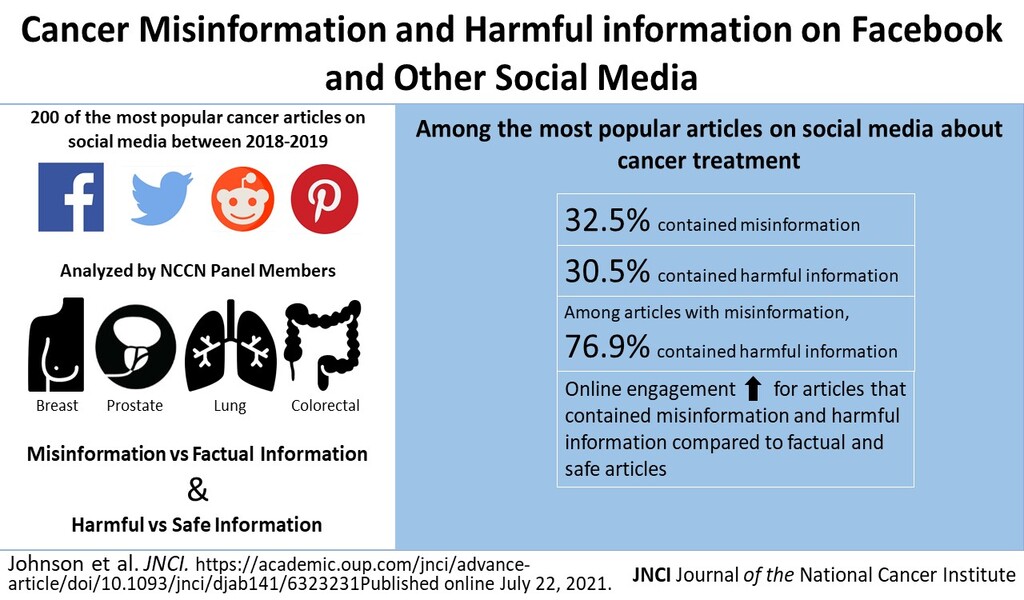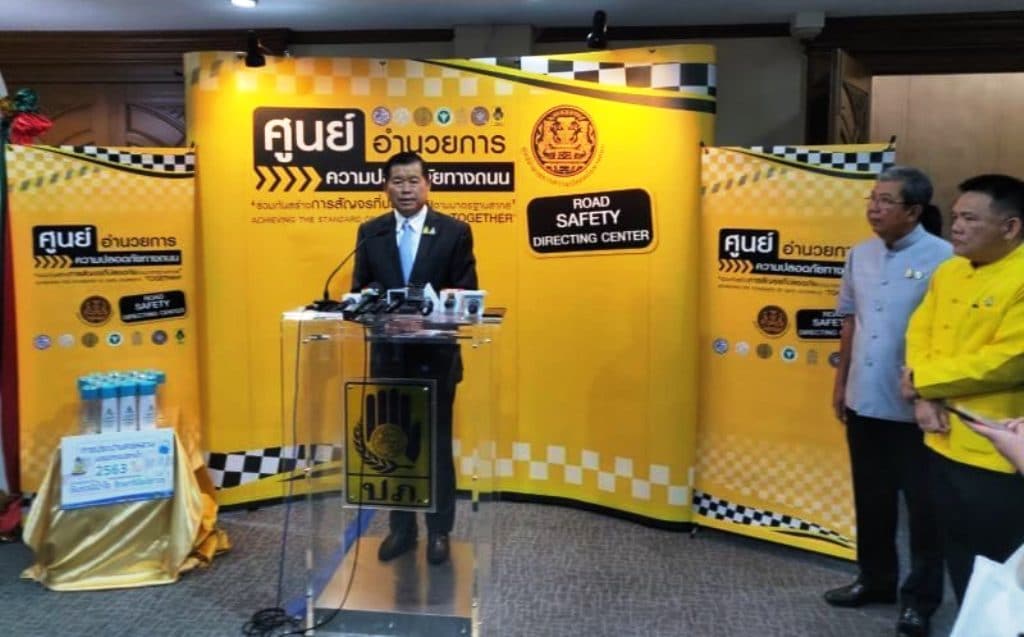Health
The Internet And Cancer Misinformation: How To Find Reliable Information

(CTN NEWS) – The internet has become a vast source of information, allowing users to access a wealth of knowledge with a simple click. However, when it comes to cancer, there is a growing concern about misinformation being propagated by self-identified experts.
Misinformation related to cancer is not a new issue, but it has become more widespread in recent years. A review published in Oncology Practice highlighted the role of social media as a major breeding ground for this misinformation.
Social media platforms provide a space for self-proclaimed experts to spread inaccurate and potentially harmful information about cancer, its treatments, and possible cures.
The authors of the review noted that one significant challenge is understanding how the internet has transformed the way people engage with health information and has facilitated the spread of misinformation.
Social media users are more likely to believe information they encounter online, especially if it is shared by a source they perceive as credible.
However, the absence of a reliable mechanism for verifying the credentials of social media accounts poses a significant problem. Essentially, anyone can engage in social media discussions without having to provide qualifications, and some may even claim false credentials.
A study published in the Journal of the National Cancer Institute conducted a comprehensive analysis of the most popular articles about the four most common cancers posted on social media platforms in 2018 and 2019.
The study found that one in every three posts contained false, inaccurate, or misleading information about cancer. This underscores the alarming prevalence of cancer misinformation on the internet, particularly on social media.
One of the most concerning aspects of this proliferation of cancer misinformation is the promotion of unproven treatments. Individuals dealing with cancer may encounter misleading information that persuades them to explore unverified or untested therapies and remedies.
Unfortunately, such treatments can be not only ineffective but also harmful, potentially delaying or preventing individuals from seeking appropriate medical care and treatments.
A notable case that garnered widespread attention involved a multilevel marketer named Jessie Lee Ward, who had Stage IV colon cancer.
Ward publicly shared her journey with cancer and her pursuit of alternative and unproven treatments with her hundreds of thousands of online followers.
Her treatment plan was criticized by media personalities and medical experts because it was not supported by scientific evidence or the recommendations of qualified healthcare professionals.
Rather than following her oncologist’s advice, which included conventional treatments such as chemotherapy and radiation, Ward pursued unconventional therapies like hyperbaric oxygen chambers, ozone treatments, magnetic treatments, and red-light therapy.
Her decision to eschew scientifically validated treatments in favor of alternative options ultimately had tragic consequences, as she passed away.
Data on the effectiveness of many alternative therapies for cancer is limited. However, a study published in the Journal of the National Cancer Institute indicated that people with cancer who opted for alternative or complementary treatments instead of conventional cancer care had a significantly greater risk of mortality.
This isn’t to dismiss all alternative or integrative therapies outright. Some complementary therapies, like acupuncture, have demonstrated effectiveness in relieving chronic cancer-related pain.
However, the decision to pursue alternative treatments for cancer should be made in consultation with healthcare professionals, with careful consideration of the available evidence and recommendations from authoritative sources.
While the internet is a double-edged sword, serving as a platform for both accurate and inaccurate information, there are ways to navigate it safely.
To counter the rising tide of cancer misinformation on the internet, it is essential to emphasize the importance of verifying the credibility of sources and prioritizing information from reputable and qualified outlets.
Consultation with healthcare professionals and authoritative organizations is critical for making informed decisions about cancer care and treatment.
The online landscape offers an array of information about cancer, but individuals should approach this information with a discerning eye. The prevalence of misinformation underscores the need for users to critically evaluate the sources they encounter online.
Engaging with healthcare professionals, established organizations, and trusted sources ensures that individuals can access accurate and reliable information to make informed decisions regarding cancer care and treatment.
Cancer is a complex and multifaceted disease. Its treatment and management vary widely, influenced by factors such as cancer type, location, stage, genetic characteristics, and patient preferences.
The field of cancer treatment has rapidly evolved, transitioning from traditional methods like surgery, radiation, and chemotherapy to the development of innovative targeted therapies and immunotherapies.
These newer treatment approaches fall under the umbrella of precision medicine, which tailors treatments to individual patients.
However, it’s important to acknowledge that not all patients respond the same way to these advanced therapies. While targeted therapies and immunotherapies have demonstrated remarkable effectiveness, they do not provide universal solutions.
Identifying predictive factors for treatment success remains an ongoing challenge for researchers and healthcare professionals.
Moreover, there has been a shift in how new cancer therapies are being studied. Historically, experimental treatments were tested one drug at a time, focusing on specific cancer types.
In contrast, contemporary research increasingly investigates combination regimens for first-line treatments. This approach aims to improve patient outcomes and address the complex nature of cancer more comprehensively.
In summary, the internet provides a wealth of information about cancer, and it is imperative to differentiate between credible sources and misinformation.
Seeking guidance from qualified healthcare professionals and established organizations is the key to making well-informed decisions regarding cancer care.
MORE RELATED NEWS:
Contract Drug Manufacturers Race To Expand For Booming Weight-Loss Drug Market
Breathing Easy: Understanding Air Quality and Its Effects on Health
Japan Approves Alzheimer’s Treatment Drug ‘Leqembi’ Amidst Aging Population Crisis






























